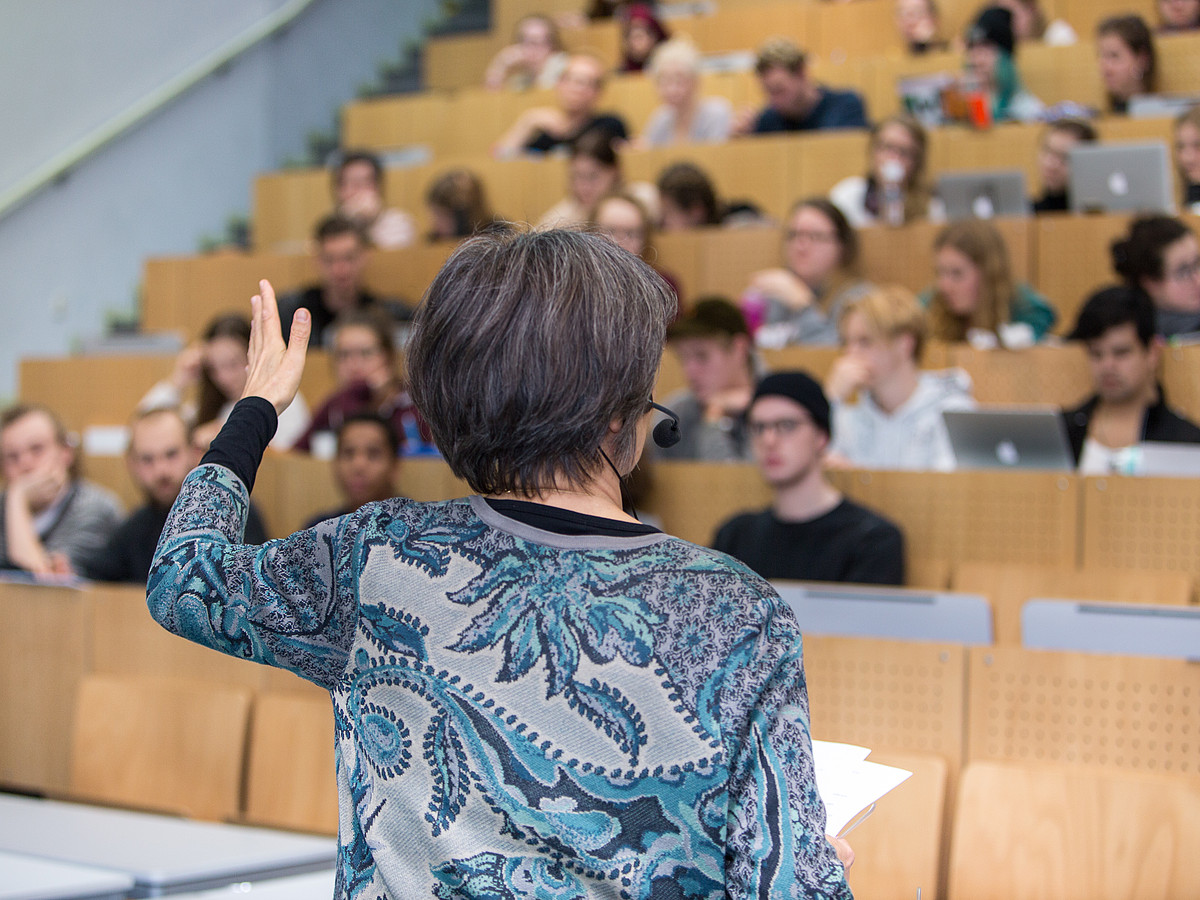According to the two-subject bachelor’s program which is structured in compliance with the so-called ‘Equal Model’ and which will be introduced at the University of Bremen in winter term 2011/12, the BA Communication and Media Studies is studied in combination with another BA program (please see also: “Combination of Programs”) either as major including a profiling focus and an amount of 120 CP or as minor without the profiling focus and with an amount of 60 CP. Keeping in mind the second BA program respectively as well as phases of practical training and examination, both study variants are, according to the current Common Examination Regulation of the University of Bremen, to be studied within a standard period of study of three years / six semesters and only possible as full-time study.
In the first year, the foundation is laid for an academic examination of mediatized communication processes. Students will acquire knowledge of basic concepts and theories in communication and media studies as well as a profound introduction to qualitative and quantitative methods of communication and media research.
The second year is dedicated to a well-founded involvement with analytical and practical questions of contemporary and historical media phenomena. The focus will lie on project-oriented learning in small groups. furrthermore students will be introduced to related disciplines such as information technology, social studies as well as economics.
The third year will conduce to the professional specialization. The main focus will lie on an independent transfer of the expertise and methodic knowledge acquired in the first two years to specific topics and issues. Here, the double profile of the BA program allows for the choice between more theoretically informed, research-oriented studies or a mentored practice semester in one of the cooperating regional and supra-regional media companies.
If the BA Communication and Media Studies is chosen as a major, the third year offers the possibility to choose between a specialization either in the priority ‘media practice’ or ‘media analysis’. Depending on the setting of priorities, the focus will either lie on the preparation for a master’s program by engaging more deeply with theories of communication and media or on a well-founded education in media practice framed by a mentored practice semester in one of the cooperation media institutions. The decision for one of the profiles will be made at the end of the second year and goes hand in hand with adequate consulting services. If interested, students with a specification in ‘media practice’ can also take part in the courses preparing for a master’s program and take credit for them in their General Studies section. This is supposed to assure the possibility of enrolling in a master’s program even after a practical semester.
For further creation of an individual profile, students have to collect 30 CP in the General Studies section. Here, students can choose from the pool of courses offered by the university and the Faculty 9. 12 CP have to be awarded in the compulsory fields of skills in methods as well as in communication and social competence which instruct in key qualifications relevant to the studies and the professional career of students (scientific research, moderation, presentational and organizational skills). Students obtain further 12 CP by choosing from courses directed to general education or artistic/musical training (such as theatre, choir, orchestra), from economics and law, from language courses or other seminars directed towards a ‘Studium Generale’.
Students have to complete a professional practical training of at least 8 weeks within the first two years of study. This helps to transfer a theoretically/analytically oriented perspective on media communication to concrete issues of media practice and to develop a distinct perspective on the occupational field of ‘media communication’ by engaging personally with these practical tasks. The practical training is mentored and will be carried out during semester break, whereas continuous and systematic support is offered for students to prepare and evaluate their practical training.
The profile building is completed by the BA thesis at the end of the third year. If students are interested, it is possible to write a practically oriented BA thesis, if applicable in cooperation with a media company.


